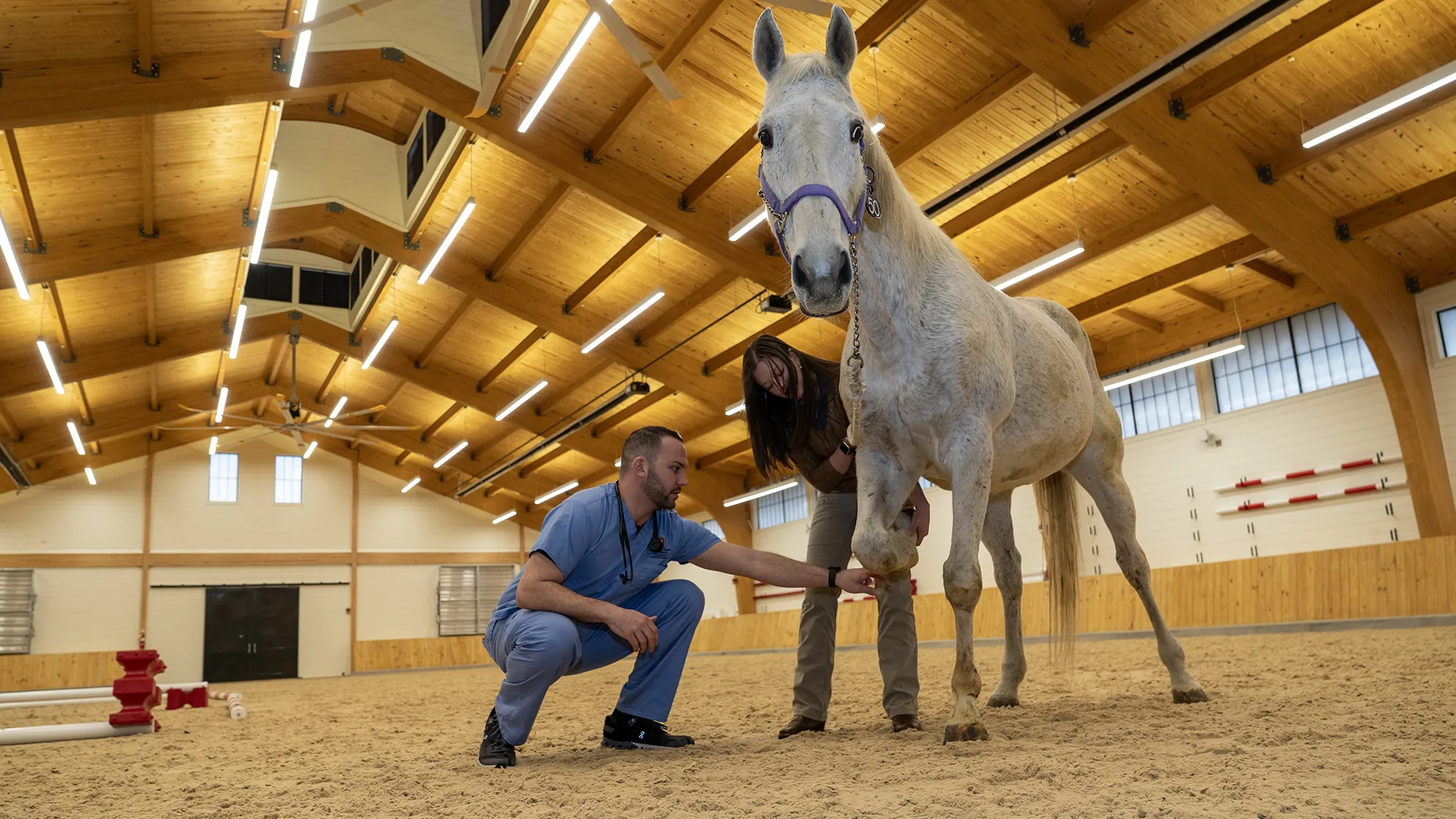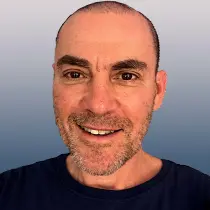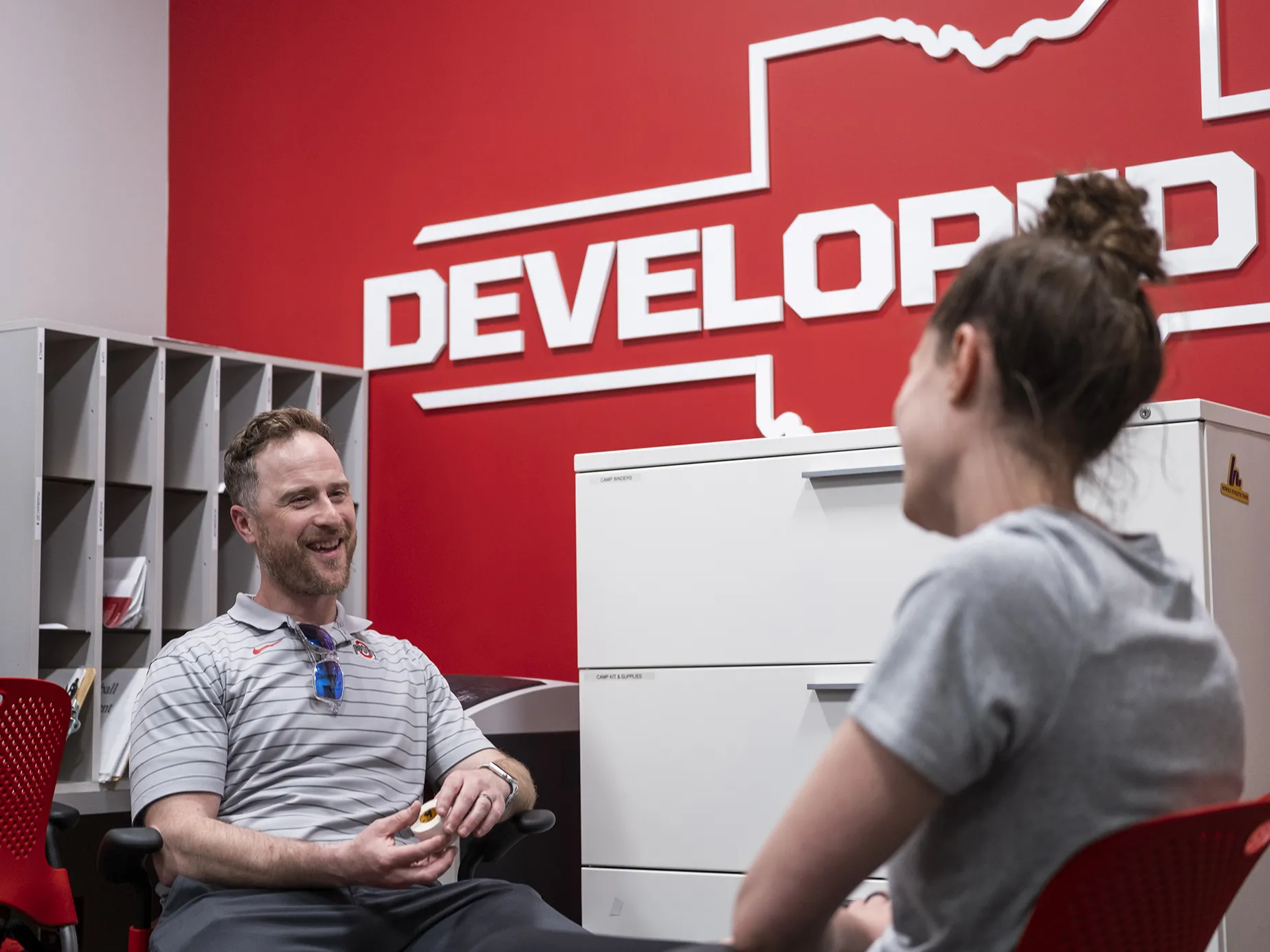Shadow Montag’s veterinary medicine education began seven weeks before he started classes in the college. He took part in a mandatory virtual orientation that helps students build coping and resiliency skills and learn about the numerous mental health programs the college offers.
“It was very helpful,” says Montag, now a third-year student. “I don’t think [mental health issues] are talked about enough. When you say the word ‘counseling,’ people think it’s a weakness, but it’s not. I tell people a counselor helps you navigate your own experiences and understand your thoughts and feelings better.”
Montag is speaking from experience. In 2012, when he was 18 years old, Montag suffered a traumatic brain injury after being thrown from a horse. He had to relearn how to walk and talk. (Read more about his journey in this story.)
Experience also taught leaders in the College of Veterinary Medicine how critical such skills are, both to care for students now and to prepare them for what can be a challenging career.
“Veterinarians tend to be perfectionists and are compassionate and empathetic, which can lead to compassion and empathy fatigue,” says Dean Rustin Moore ’89 DVM, ’94 PhD. “We often experience high levels of stress and depression.”
The college had always been a leader in caring for student well-being, but a tragedy was the impetus for expanding a platform of programs to help students strengthen their mental health.
“On my 21st day of deanship [in 2015] we lost a student to suicide. It was terrible,” Moore says. “We realized we needed to do more to support our students so we looked at implementing preventive measures. We were determined to do everything we could to help our students achieve sustainable personal and professional success.”
As part of the proactive approach, Moore says, the college added counselors. “Some students might need medication for anxiety that counselors can’t prescribe,” he says. “They need to see a psychiatrist and that can take weeks, if not months, so we added a part-time psychiatrist from the Wexner Medical Center.”
College of Veterinary Medicine students helped pilot and now participate in MindStrong, a university wide program that helps build mental resiliency, coping skills and overall well-being.
“Another stressor is finances,” Moore says, noting the cost of attending the highly ranked program. The college has increased its scholarship fund from $370,000 to $3.5 million. “Our goal is to give each student the equivalent of one year of in-state tuition.”
The college has also added an exercise room, an employee support and engagement specialist with a social work background, and the College of Veterinary Medicine Community Cupboard. “We heard about students skipping meals because they didn’t have enough money for food, so we created a way to help,” Moore says.
Resources will continue to be added.
“The work is never done,” Moore says. “That means we constantly strive to be the model in everything we do.”
Montag hopes other veterinary schools adopt these approaches “to create a safe place to learn.” Humor and the opportunity to talk through his experiences aided his recovery, says Montag, a Belmont, Ohio, native whose love of horses and animals led him to Ohio State.
“At first, I thought I was too open about going to counseling, but now I’m hearing others say they just talked to their counselor,” he says. “That makes me so happy they’re getting help.”





